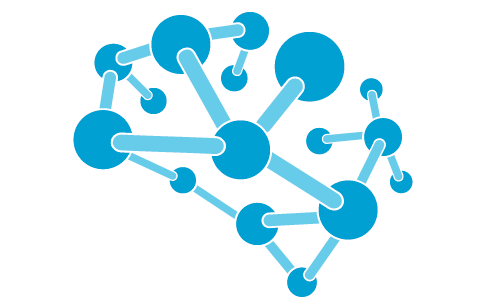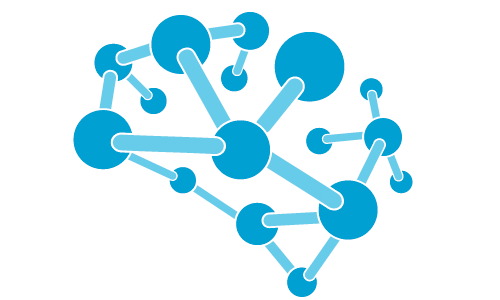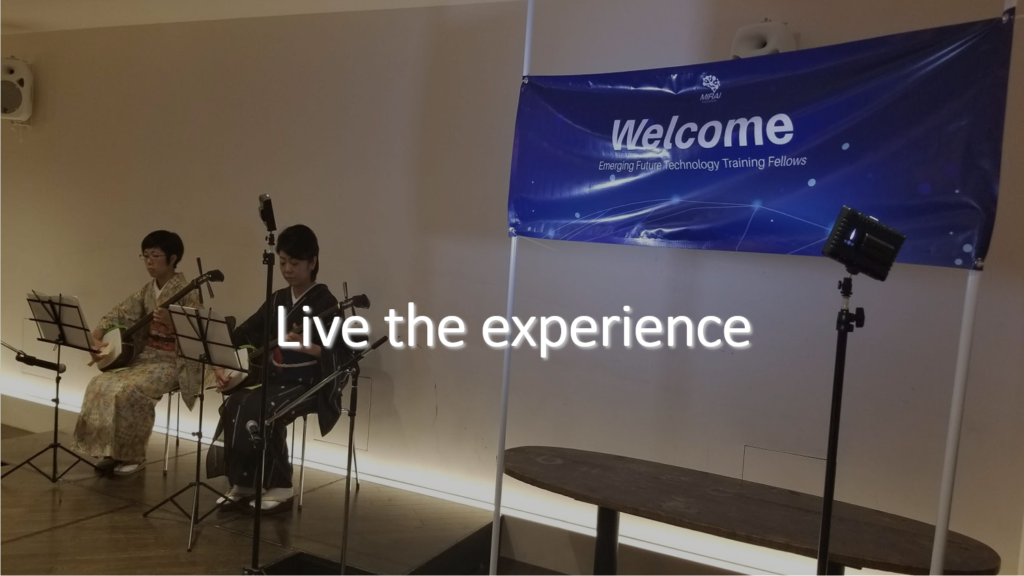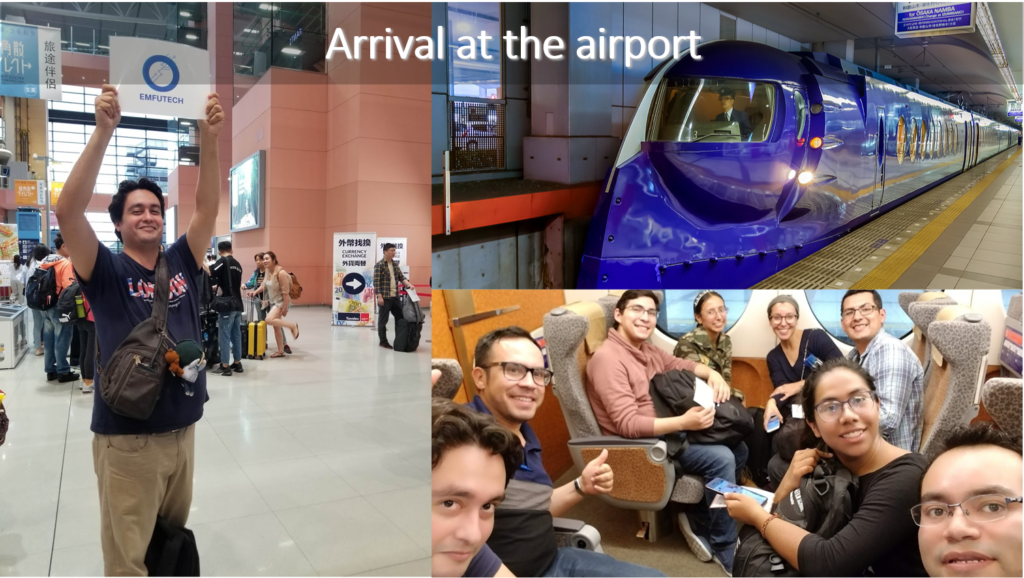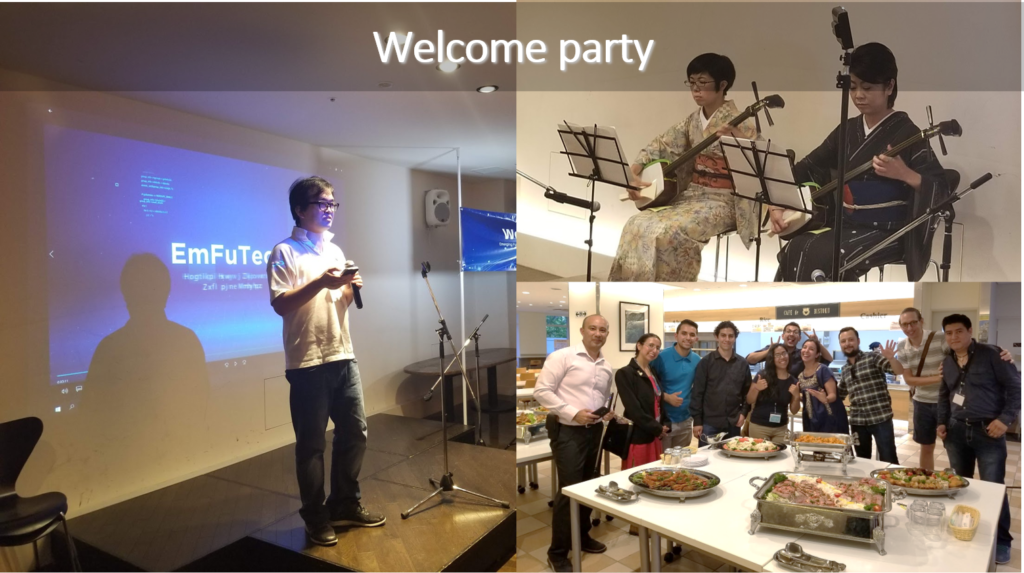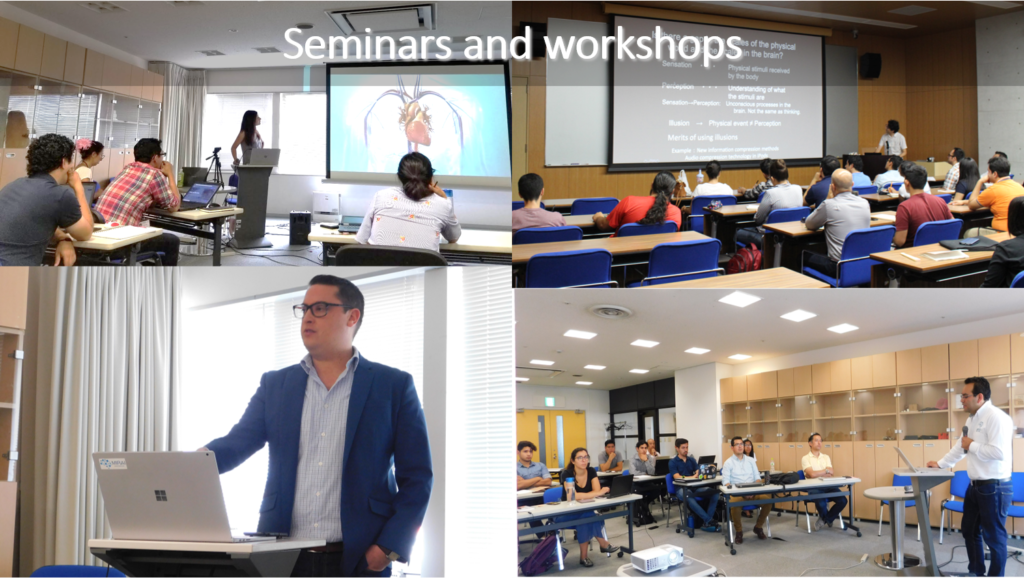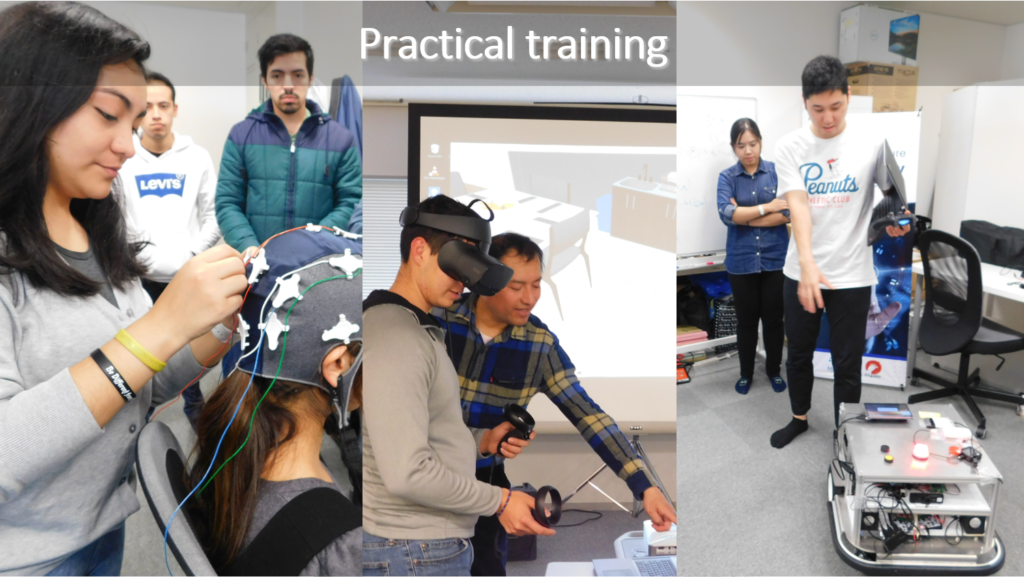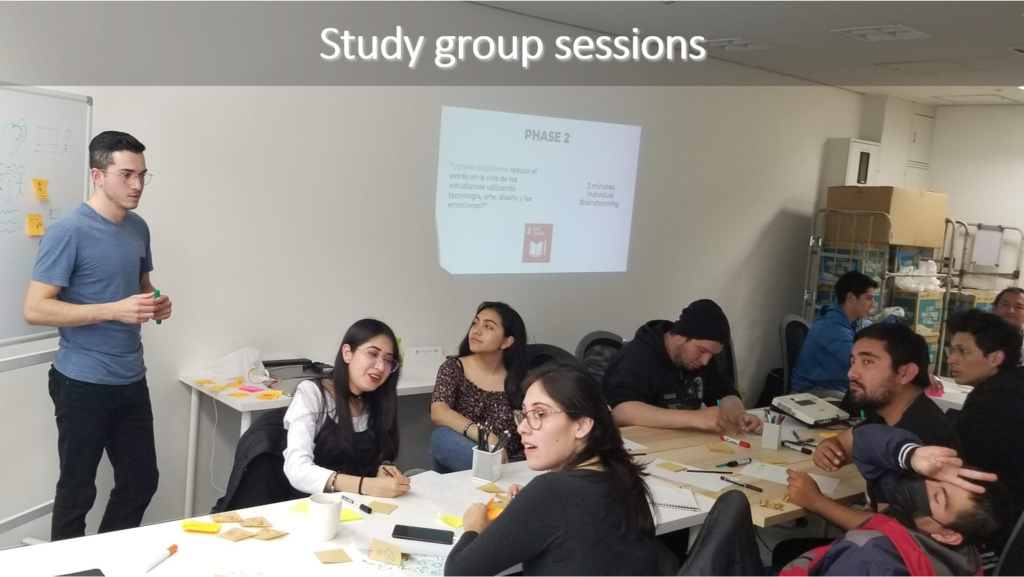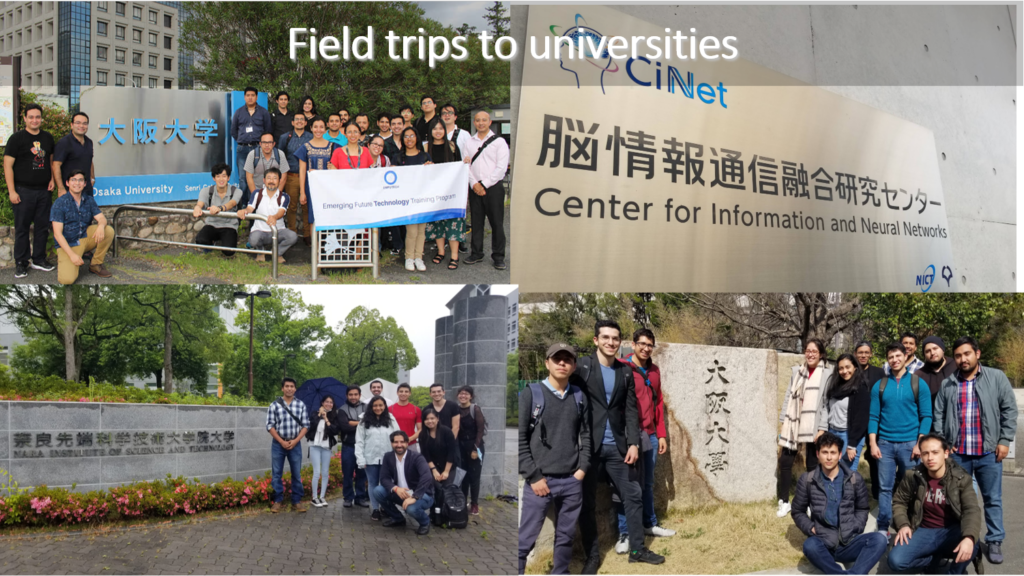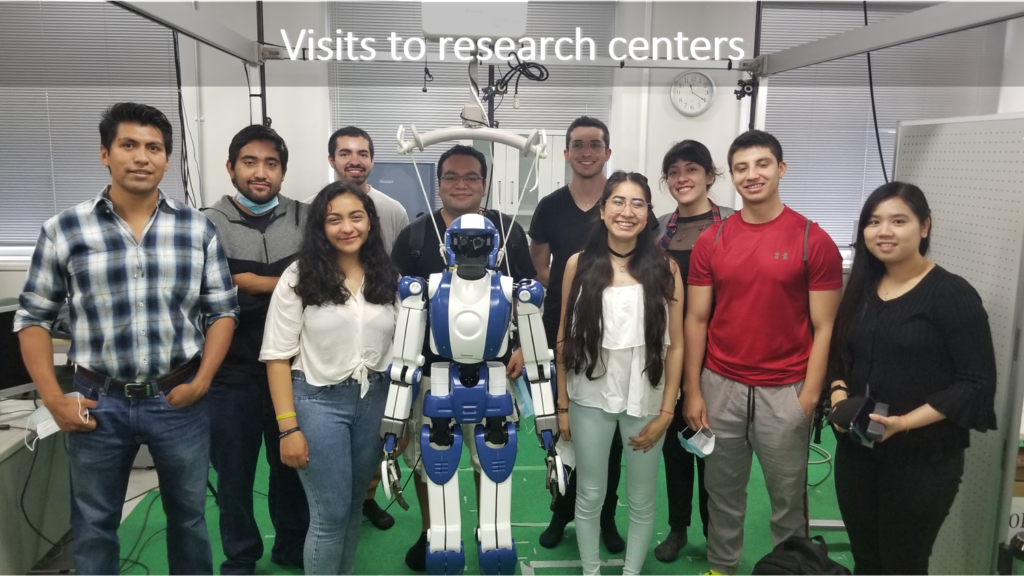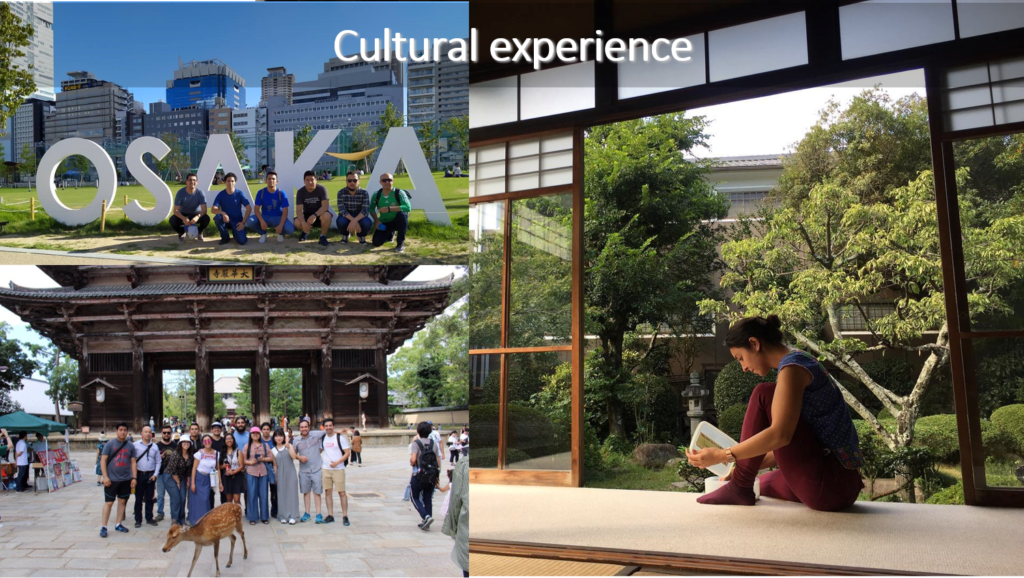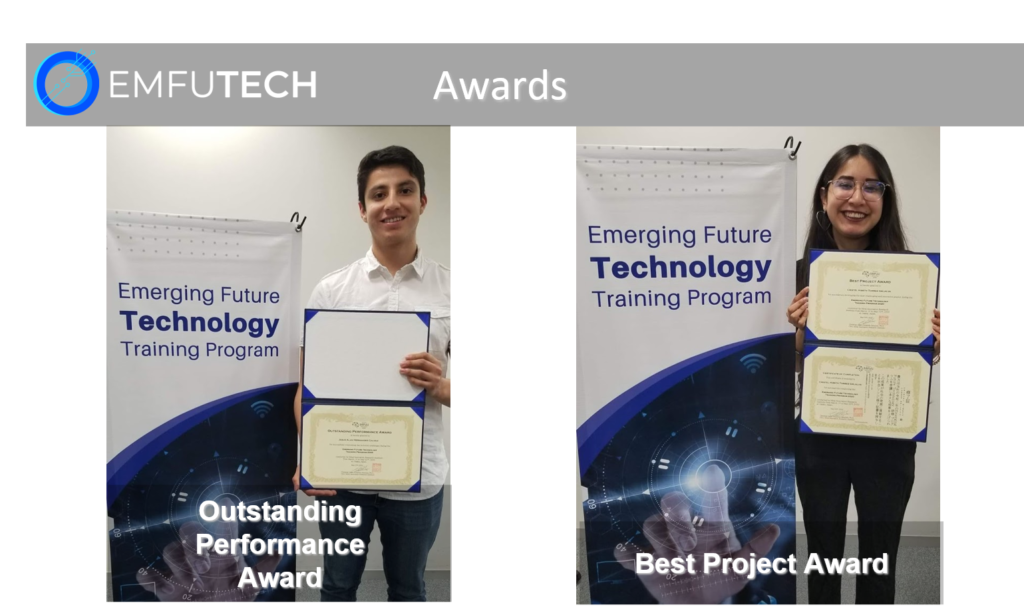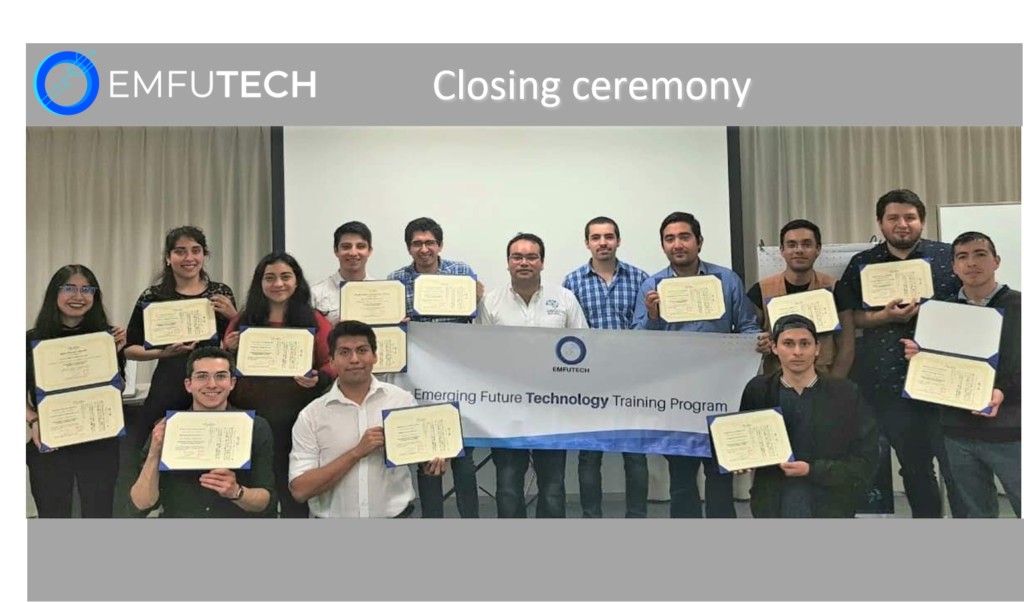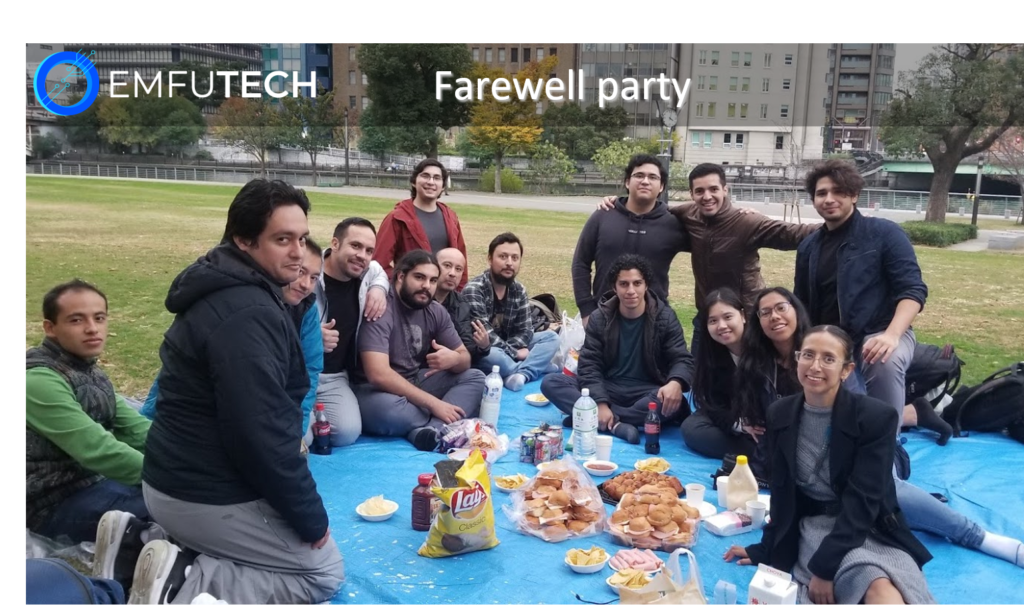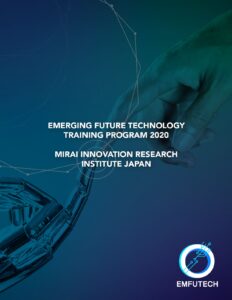
Spring 2024
Come to Japan and learn
from the experts
12 weeks emerging technologies program in Japan
Program Dates: April 7th to June 28th, 2024
Application deadline: January 21th, 2024
Come to Japan, learn and live the experience
The Emergent Future Technology program is 12-weeks intensive program that consists of technical seminars, workshops, mentorship and hand’s on experience industry projects in Osaka, Japan. Guided by academy and industry experts who are innovating their fields, the program will give participants a well-rounded knowledge about cutting edge emergent technologies. Participants will be assigned an industry project provided by associate Japanese companies, universities or research institutes, in which they will analyze a particular challenge, design and propose an innovative solution using emergent technologies, and develop the technical solution in collaboration with peer participants guided by an assigned mentor.
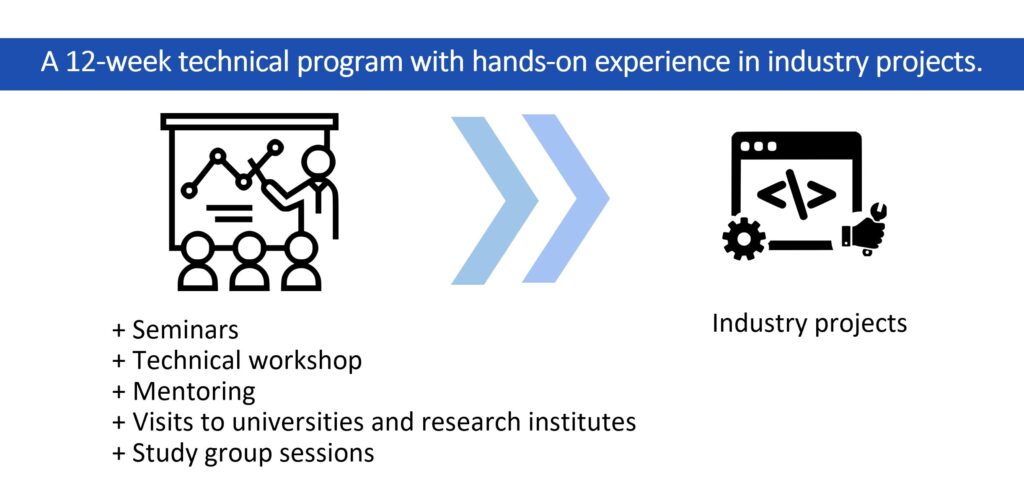
Emerging Technologies
The projects will be provided by partner-companies or research institutes. The participant will analyze a particular challenge, design and propose an innovative solution using technologies such as Artificial Intelligence, Augmented Reality, Robotics, Computer Vision, IoT, Big Data, Cyber Security, Nano-technologies and Aerospace technologies. The projects will be carried out either individually or as a teams. A mentor will guide the participants throughout the development of the project.
The challenges correspond to companies in various industries, such as telecommunications, logistics, finance, mechanical engineering, chemistry, transportation, pharmacy, and food industry, to name a few.
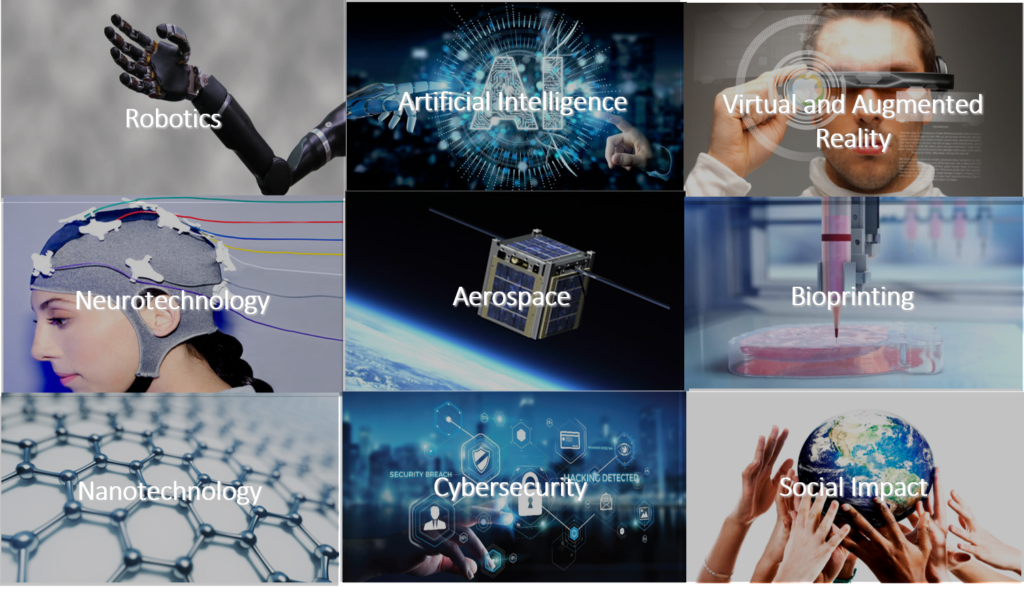
The challenges correspond to companies in various industries, such as telecommunications, logistics, finance, mechanical engineering, chemistry, transportation, pharmacy, and food industry, to name a few.
A 12-weeks technical training program with hand´s on experience on industry projects
Program Timeline
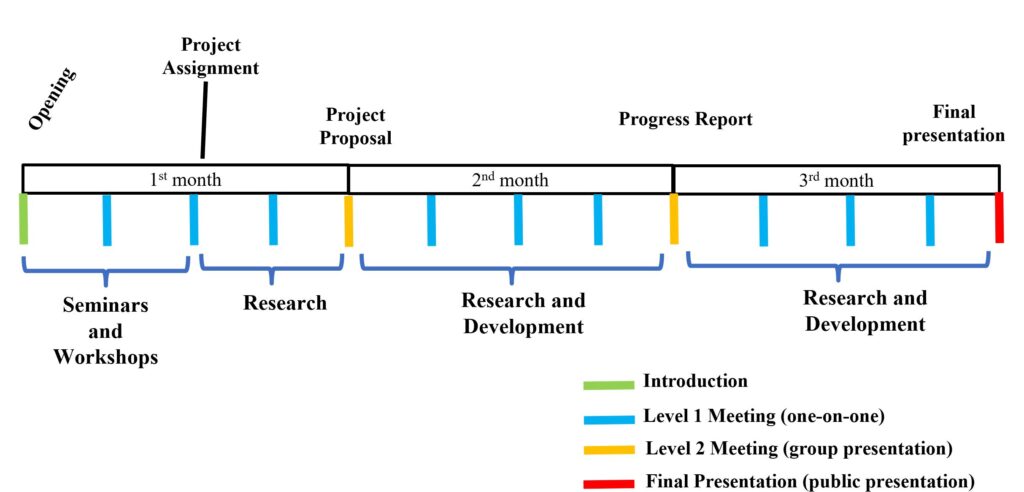
Seminars & Workshops
These are some of the seminars and workshops during EmFuTech 2020*
- Machine Learning Methods for Robot Learning Applications
- Natural Language Processing – Methods and Learning Techniques
- Hands-on Training on Machine Learning Methods using Tensorflow
- Implementation of AI Algorithms on Android Mobile Platform
- The use of Artificial Intelligence in Digital Systems
- What does “Safety of AI” mean and can we achieve it?
- AI & Computer Vision with OpenCV and Python
- Visual human body analysis and speech assessment using Artificial Intelligence
- Robot Kinematics & Applications
- Robot Navigation – Programming with Robot Operating System (ROS)
- Methods on Human-Robot Interaction
- Aerial-Terrestrial-Aquatic (ATA) Robot for ATA Extreme Environment
- Towards an efficient framework for realizing robotic assembly tasks
- International Robotics Competitions
- Introduction to Neurotechnology
- Neurotechnology Trends and Applications
- Brain-Machine Interface System Development
- Neuromarketing using Brain Signal Analysis Tools
- Web Development with React and Node.js
- Cloud Computing Services and Applications
- Cloud Computing using Amazon AWS
- Virtual Reality – Hands-On Training with Unity
- Videogame Development with Unity
- Developing Augmented Reality Applications with Unity and HoloLens
- Cybersecurity I – Hacking the internet of things
- Cybersecurity II – Hacking the internet of things
- 3D Bioprinting Technologies for Manufacturing Human Tissues
- 3D Bioprinting is Medicines Next Frontier
- Lessons from a Canadian Innovation Consultancy
- Lean Manufacturing and applied TPS outside Toyota
- Introduction to Design Thinking Methodology
* Seminars and workshops are subject to change for EmFuTech 2022
These are some of the speakers of EmFuTech 2020*
* Speakers are subject to change for EmFuTech 2022
Projects
These are some of the projects developed during previous EmFuTech editions*
Logistic robots are useful to move goods into facilities, but normally these types of robots require special infrastructure or a controlled environment to operate correctly. In this project, simultaneous localization and mapping (SLAM) is used to achieve autonomous and semi-autonomous navigation capable of collision avoidance. Moreover, the information from cameras and a LIDAR sensor is used to detect when a human is present (or not) in the scene, as well as, to track the person using AI. This functionality can be used to help a human operator to handle and transport heavy loads from one place to another in a non-controlled environment.
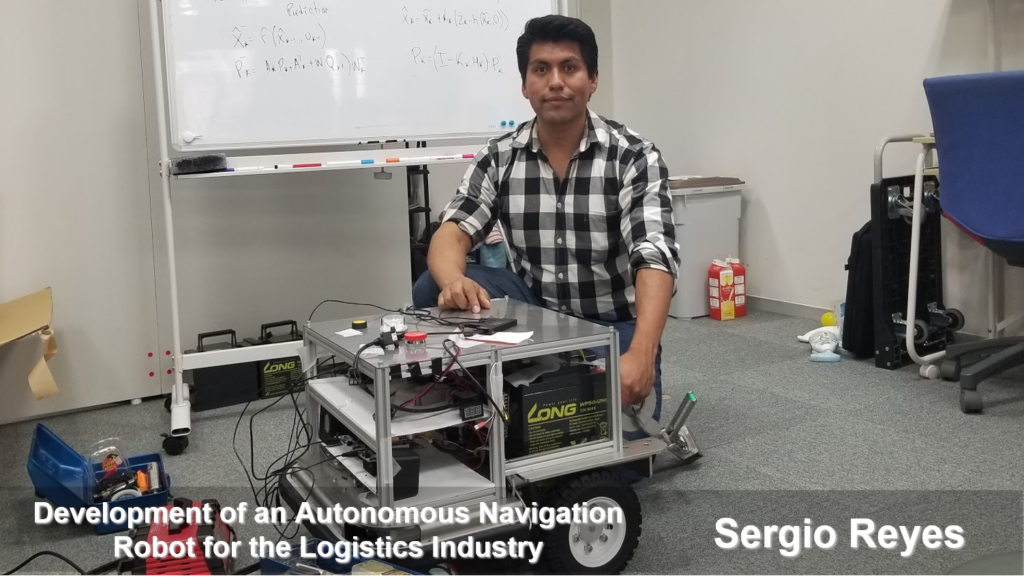
Around the world, the health sector is affected by the overgrowth of the population in proportion to the number of doctors and nurses that exist per person, which is why the patient does not normally receive quality care from health sector workers. Moreover, nowadays due to human-to-human contact, the medical staff is exposed to dangerous diseases such as COVID-19, thus creating the need to develop medical assistant robotic systems that can help relieve these situations. The purpose of this project is to develop a voice bot that can provide pre-diagnosis to patients quickly and efficiently while protecting our human resources in hospitals.
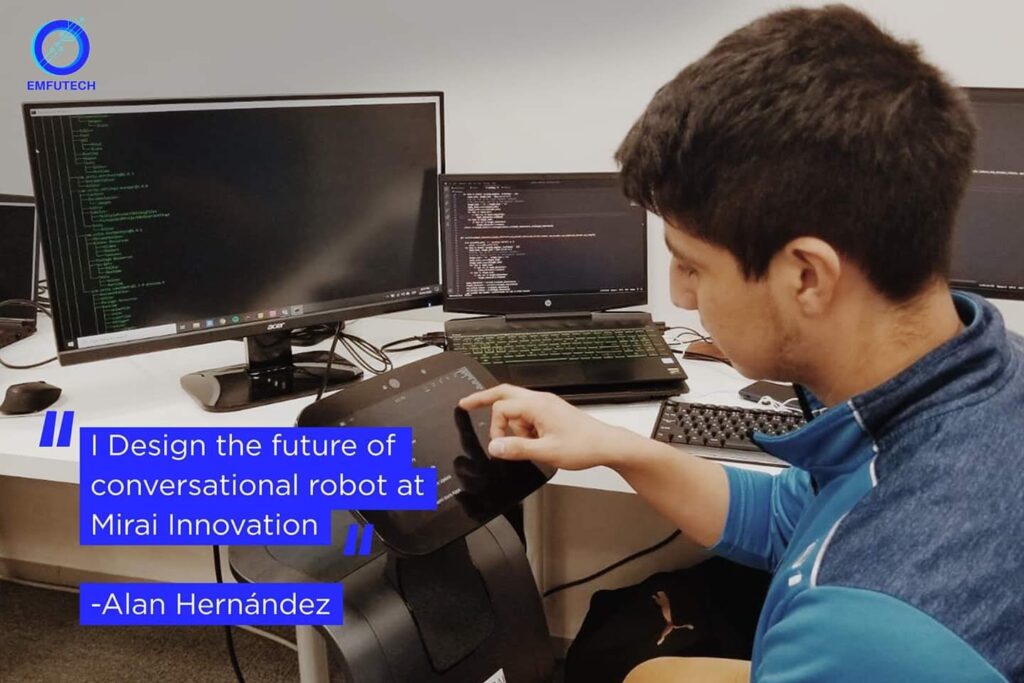
Spinal cord injury (SCI) affects over 378,000 individuals each year. Incomplete tetraplegia is the most common symptom of SCI, and restoration of the use of hand and arm is the highest priority between tetraplegics. This work shows the development of a system for rehabilitation of the upper limb for people with spinal cord injury through Functional Electrical Stimulation (FES). The proposed system uses AI-based algorithms to recognize hand-arm movements from a therapist and replicates these movements into the patient through electrical stimulation. The functional prototype presented in this work demonstrates the feasibility of the system to be used in rehabilitation for the recovery of upper limb movement.
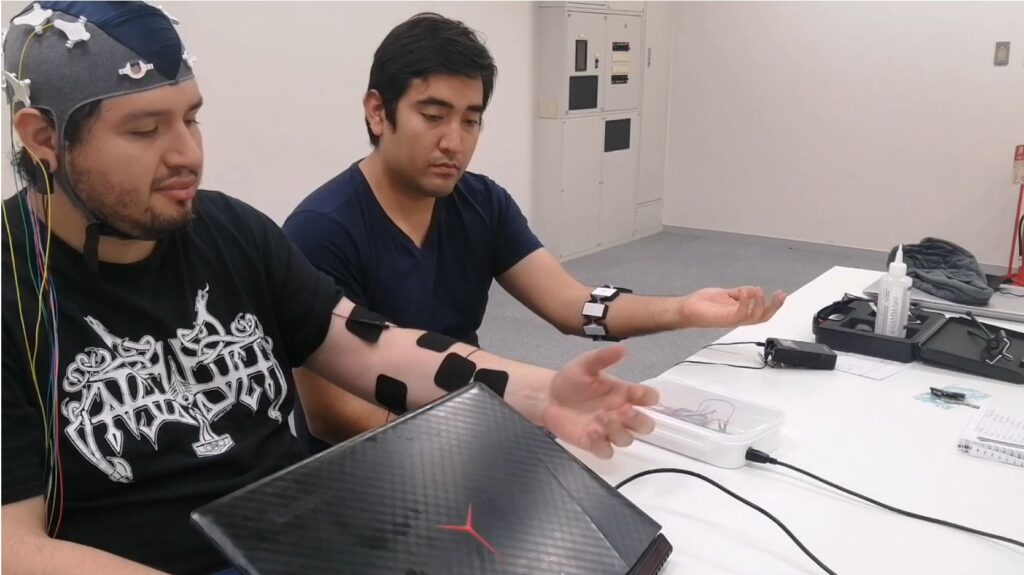
Online media content – whether it is educational, entertainment, social, or marketing content – can be highly optimized to improve the experience of the consumer if the content design takes into consideration the consumer’s preferences and emotions. A novel approach to measure a person’s preferences and emotions is by monitoring biosignals, such as brain signals, eye movement or facial expression, and calculate the level of visual and cognitive attention when the person observes the media content. With this in mind, in this project, we developed MIRAISense, a biosignal analysis platform that analyzes three types of data (EEG, Eyegaze, FaceEncoding) to see the reaction when a person observes video commercials or online classes. The software then calculates the cognitive engagement, auditory engagement, visual engagement and creates a representation to highlight the important segments of the video.
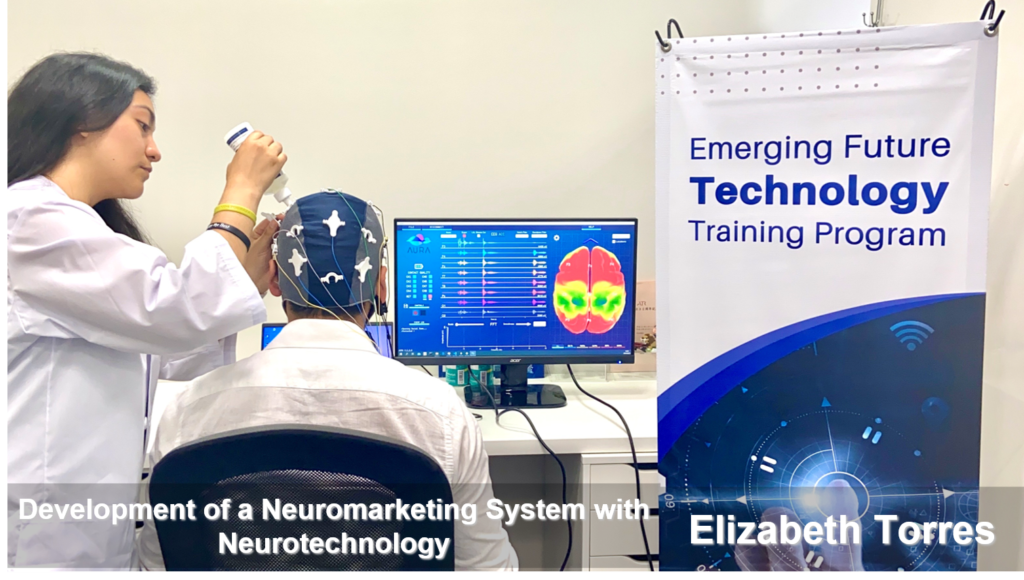
Unmanned vehicles have been advancing year after year, from UAV’s better known as drones to different ground vehicles mainly with movements based on wheels and even aquatic vehicles, which can be submerged to significant depths. Different hybrids of these have been created, mainly submersible drones, which can move underwater with the help of their propellers. This type of vehicle can be used for rescue work, mainly due to its size and versatility, allowing each one to operate in their respective environment with few limitations. However, it is important to emphasize that no type of hybrid has been created that can be deployed in the 3 environments (Air, Earth, and Water), which is why this project aims to develop a functional robot that can fly, walk and move in the water.
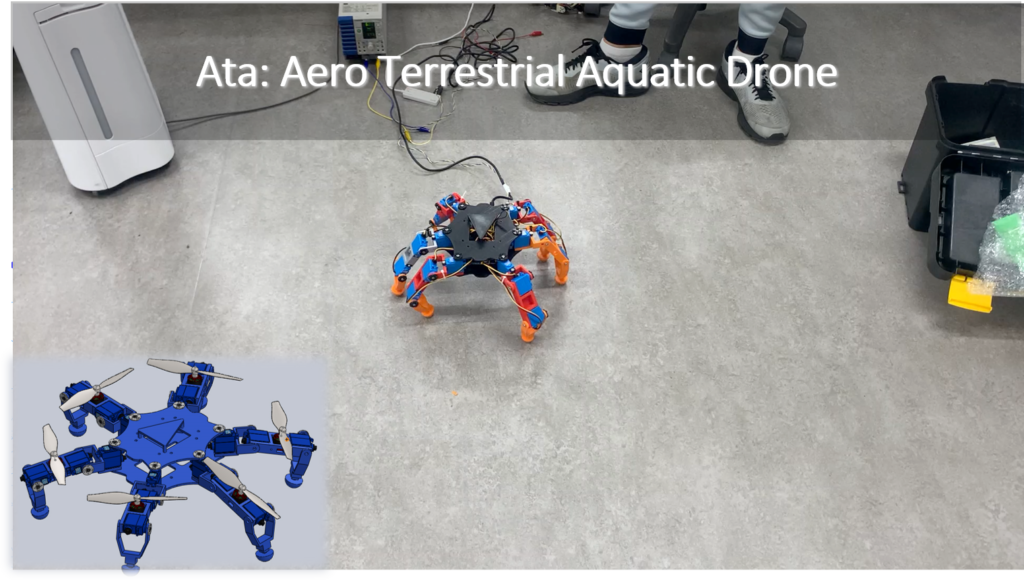
We live in a world that revolutionizes at the speed of light, thus bringing us new unknowns about how new technologies impact our daily basis, in the case of neurotechnologies it is possible to see that they will give us answers to many of the challenges that different industries face today, however, the development of a technology with such an impact also requires a great responsibility which throws us questions on how to deal with ethical, legal, social impact as well as safety issues. This is why prestigious institutes such as The Institute of Electrical and Electronics Engineers (IEEE) have developed proposals including the guideline “STANDARDS ROADMAP: NEUROTECHNOLOGIES FOR BRAIN-MACHINE INTERFACING”. In this project, we had the opportunity to analyze this document with the help of experts of international stature in order to obtain a broad vision that helps us to make recommendations that lead to the early adoption of both neurotechnologies and standards in the near future.
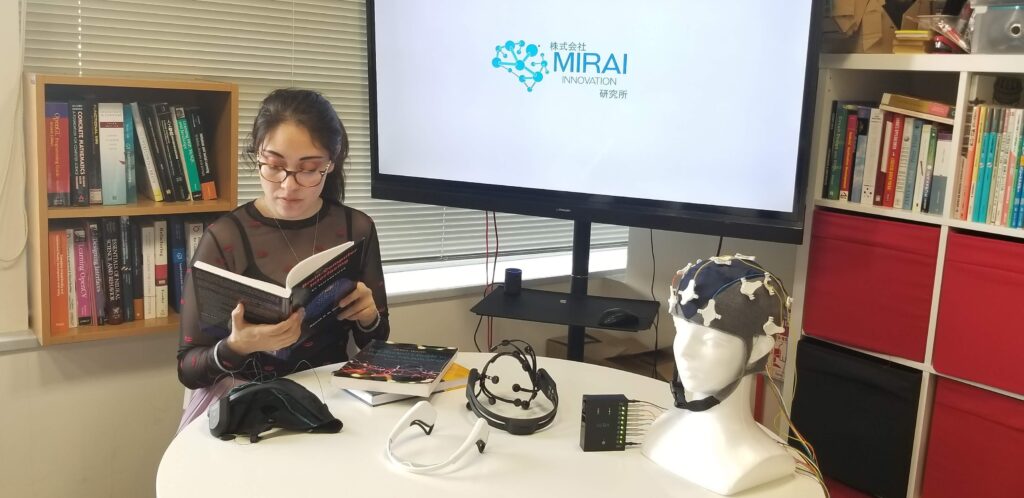
The education industry is currently evolving and nowadays online learning has begun to acquire greater interest than traditional face-to-face classes. Nonetheless, there are several issues that slow down the process to make online education an efficient and competitive learning approach. On one side, pre-recorded video lessons do not take into consideration the visual or auditory attention of the student and cannot adapt to the student’s learning capabilities. On the other side, during live lessons, teachers do not have the ability to know if the students are paying attention. Therefore, there is a need to develop systems that can optimize the learning experience by monitoring the student’s attention to personalize the educational content or provide feedback to the human teacher. One way to achieve this is through neurotechnology that can monitor brain activity. In this work, we present WAVEX , a wearable device that aims to solve the future landscape of effective online education. WAVEX is an EEG headset adapted with a VR headset, that can monitor the brain activity of the user while attending an online class.
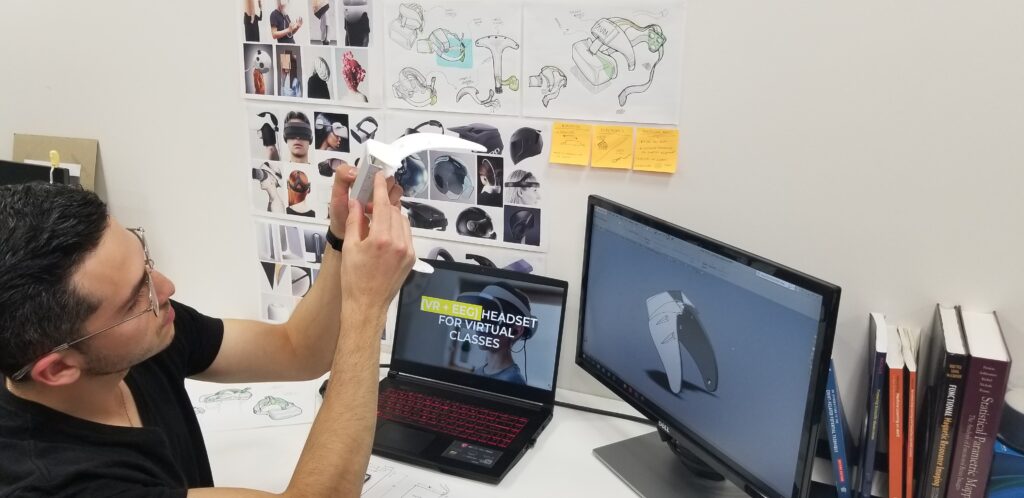
Bioprinting is an emerging technology that will revolutionize the manufacturing of human tissue and organs. Currently, bioprinting has two main issues: it is an expensive technology and has a lack of versatility. Previous works have presented Handheld Bio Dispensers or 3D bioprinters, but only as a single-mode use, not as a dual mechanism that covers both needs. The main objective of this project is to create an extrusion-based dual bioprinting system that can be implemented as a build-in extruder in a 3D conventional printer and as a handheld dispenser device for manual use for covering both needs.
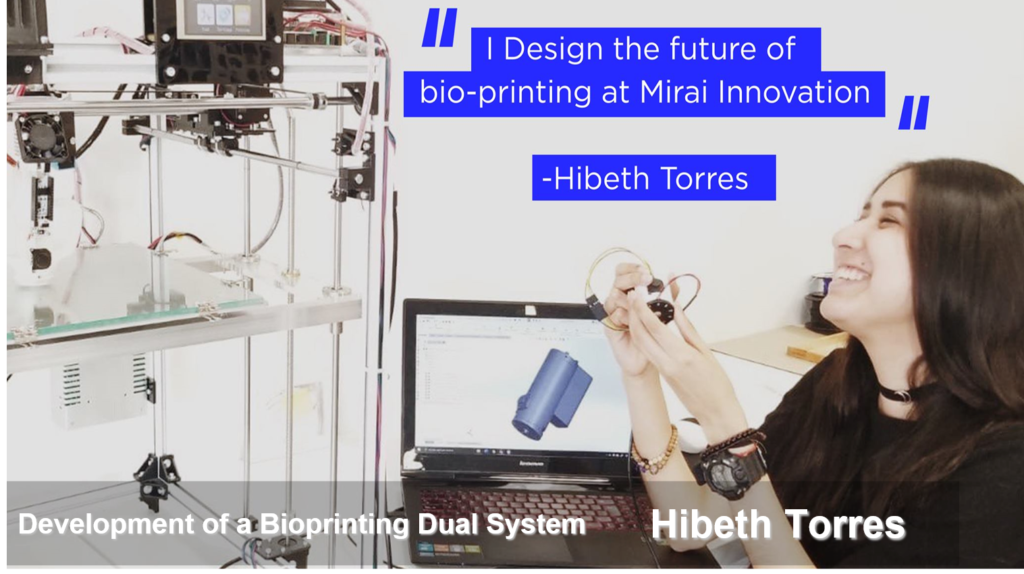
* Every year we offer new projects, but some of the projects of EmFuTech 2022 may be a continuation or upgrade of previous projects.
EmFuTech Projects 2023
Meet the winners of the "Best Academic Project" Award
Come to Mirai Innovation, live the experience in Japan
Location
EmFuTech Program takes place at the Asia Pacific Trade Center (ATC) located in Osaka, the second largest metropolitan area after Tokyo. ATC complex is where the World Leader Summit G20 took place in 2019.

Our Student' Voices
We are looking for
innovators
Who can apply?
-Citizenship from a country that Japan has diplomatic relationships
-Conversational English level equivalent to TOEFL 550pts (Although no certificate is necessary, English competency will be evaluated during the interview)
– Recommended experience in any of the following programming languages as C, C++, C#, Java, Python, or Web programming.
-Recommended experience working in other technology projects (hackathons, competitions, research projects, technology management projects, etc.)
– Have your own personal computer.
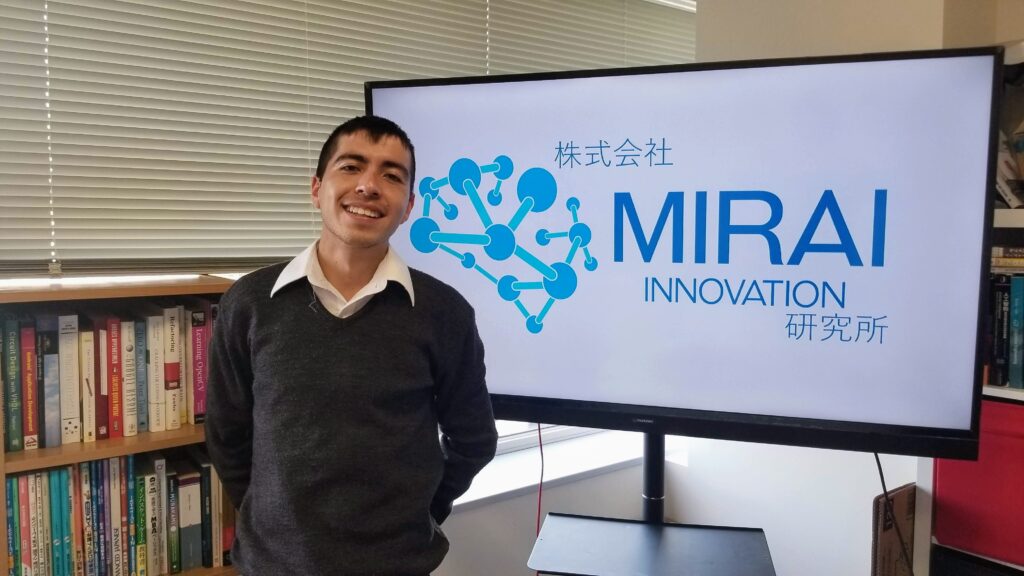
Application Process
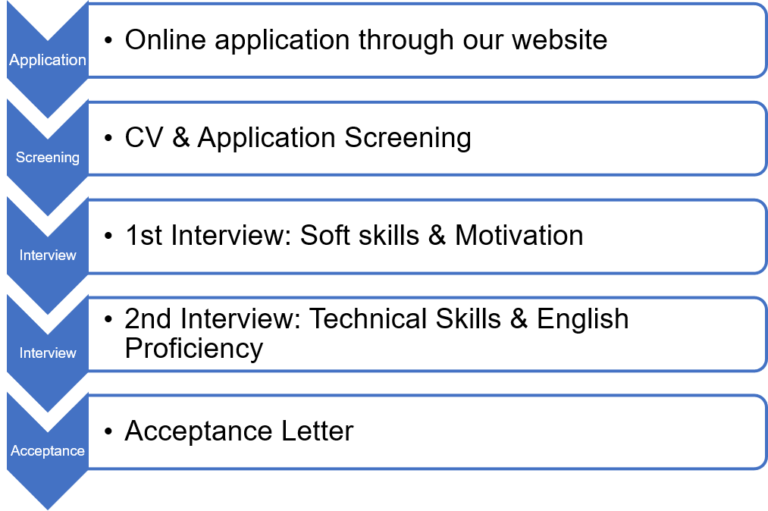
Only
top 20
participants will be selected
Important Dates
| January 21st, 2024 | Application deadline |
| January 22nd to 29th, 2024 | Evaluation Interviews |
| January 30st, 2024 | Acceptance Result Notification |
| February 2nd, 2024 | Scholarship Application deadline for accepted participants |
| February 4th, 2024 | Scholarship Notification |
| February 5th, 2024 | Registration fee online payment deadline |
| February 15th and March 15th, 2024 | Program fee is split into 2 monthly payments |
| April 5th, 2024 | Travel to Japan |
| April 7th, 2024 | EmFuTech starts |
Requirements
- Valid Passport
- Travel insurance
- Special activities visa*
* Mirai Innovation Research Institute will provide the necesary documents to process the visa at Japanese embassy of your country
Program Fee
Registration fee: $500 USD
Program fee: $6500 USD*
*Registration fee is non-refundable – taxes not included
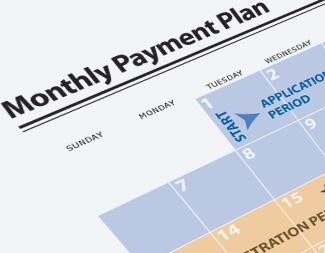
The program fee will be split into 2 monthly payments.
The Program Includes:
- Pre-departure orientation
- Guidance support in Japan
- Welcome reception
- Inauguration ceremony
- 2 weeks of seminar and workshops in diverse emerging technologies
- Project assignment from a company or university collaborator
- 8 weeks of research & development guided by Mirai Innovation Researchers
- Weekly one-to-one mentoring
- Use of all available equipment of the laboratory
- Field trips to universities and research institutes
- Diploma upon successful completion of the program
- Farewell party
- Professional video that documents the highlights of the program featuring your participation in diverse activities.

Scholarships
Students who get accepted to the program will have the opportunity to apply for scholarships and financial aid options.
Sponsors
Do you know a company that might be able to sponsor your participation at EmFuTech?
We offer sponsorship plans for companies so they can also benefit from your participation. Companies can even propose a project to be developed at EmFuTech!
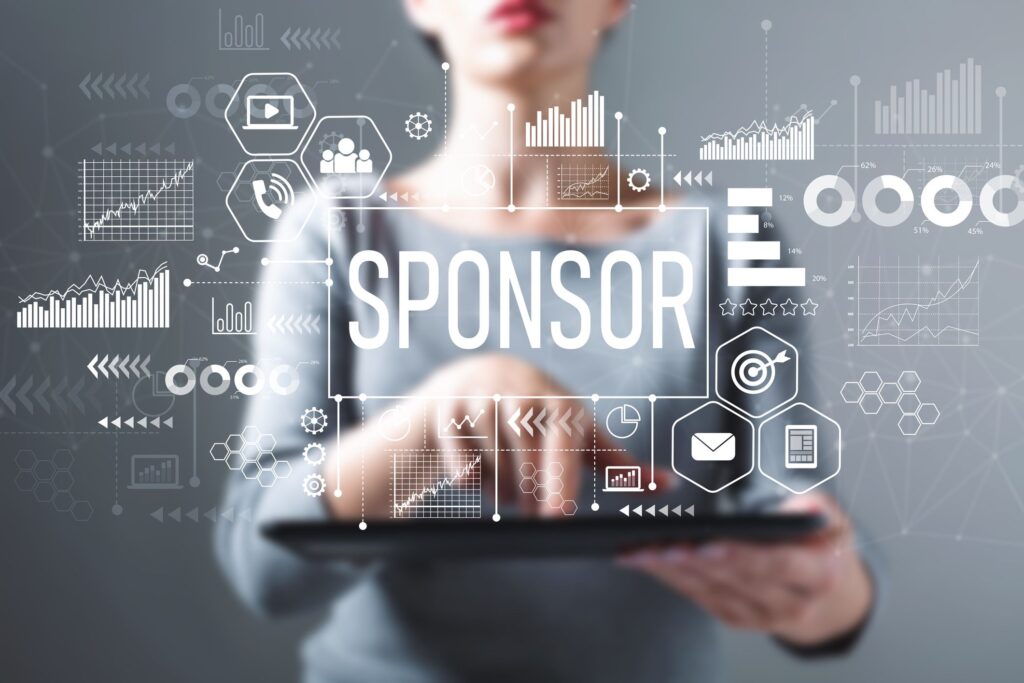
Come to Mirai Innovation, live the experience in Japan
Partners and Sponsors
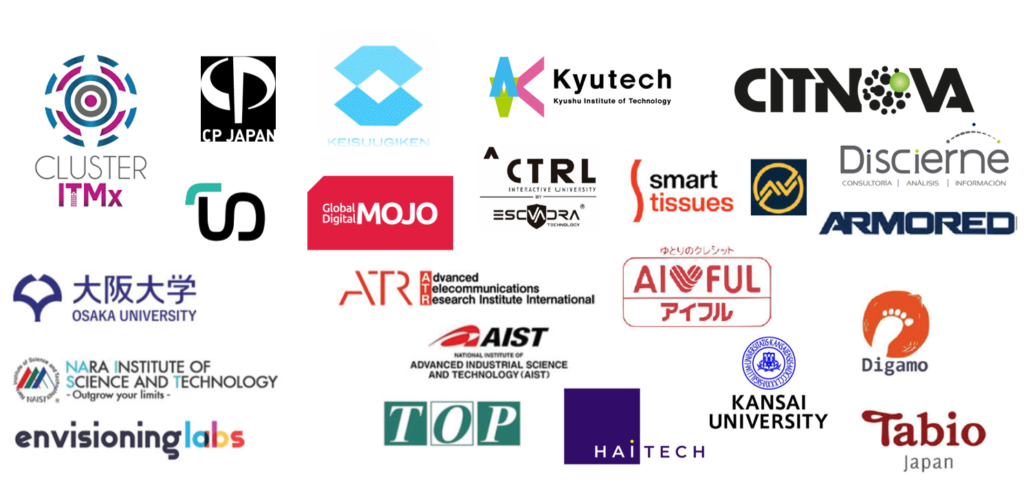
Graduates from
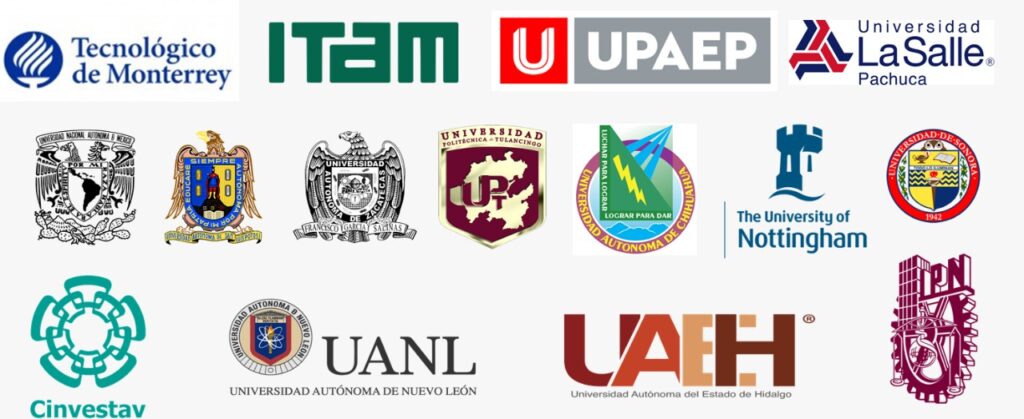
Apply now
Fill in your application and join us in Japan from April 7th to June 28th, 2024, 2024
For more information please contact us
Meet the Best Innovation Project Award 2022
Live the experience
FAQ
Yes, you are still eligible to apply. If accepted you will need to immediately apply for a passport.
All the seminars and meetings are taught in English; however, the program does not require any certificate or test proficiency. The capability of communication in English will be evaluated during the interview.
No, once you have submitted your application for review you will not be able to make any changes or add additional information.
In most cases, a visa will not be necessary. We invited you to revise the conditions for short stays issued by the Japanese embassy or consulate in your home country. In specific cases we can provide an acceptance letter to the program.
Our programme does not require professional experience.
According to the phase of the application process you will be updated by the email address emfutech@mirai-innovation-lab.com Please, review your spam folder in order to get our contact messages.
Yes. You can reapply for the programme for the next time. Resubmission requires a completely new set of application documents.
We currently do not offer accommodation options. The program can provide an external service for a fee of 250 USD that includes searching for accommodation within Osaka, arrangements of basic services, pick up at the airport and drive to the residence.
We anticipate that it will cost you approximately 1,000 USD per month to live in Osaka. Therefore, the total estimated cost is 8,000 USD for three months. Below we provide an estimate of average costs for monthly housing and living expenses for students in Osaka: Rent (central Osaka): 56,000 JPY, 500 USD Utilities (gas, electricity, water): 8,000 JPY, 72 USD Compulsory National Health Insurance: 3,000 JPY, 28 USD Communication (mobile, internet connection): 5,000 JPY, 45 USD Food: 35,000 JPY, 315 USD Transportation: 5,000 JPY, 45 USD Monthly total: 112,000 JPY / 1,013 USD. Here you can consult a summary https://www.numbeo.com/cost-of-living/in/Osaka
Other academic fields can apply for the training program. The academic background will be considered. We strongly recommend reading the information and have full disponibility for being taught about technical areas of technology and innovation.
Students are welcome to our training program, as long as candidates fulfil the requirements of the program.
Either the Training Program or partnership companies cannot assure the participant a job opportunity.
